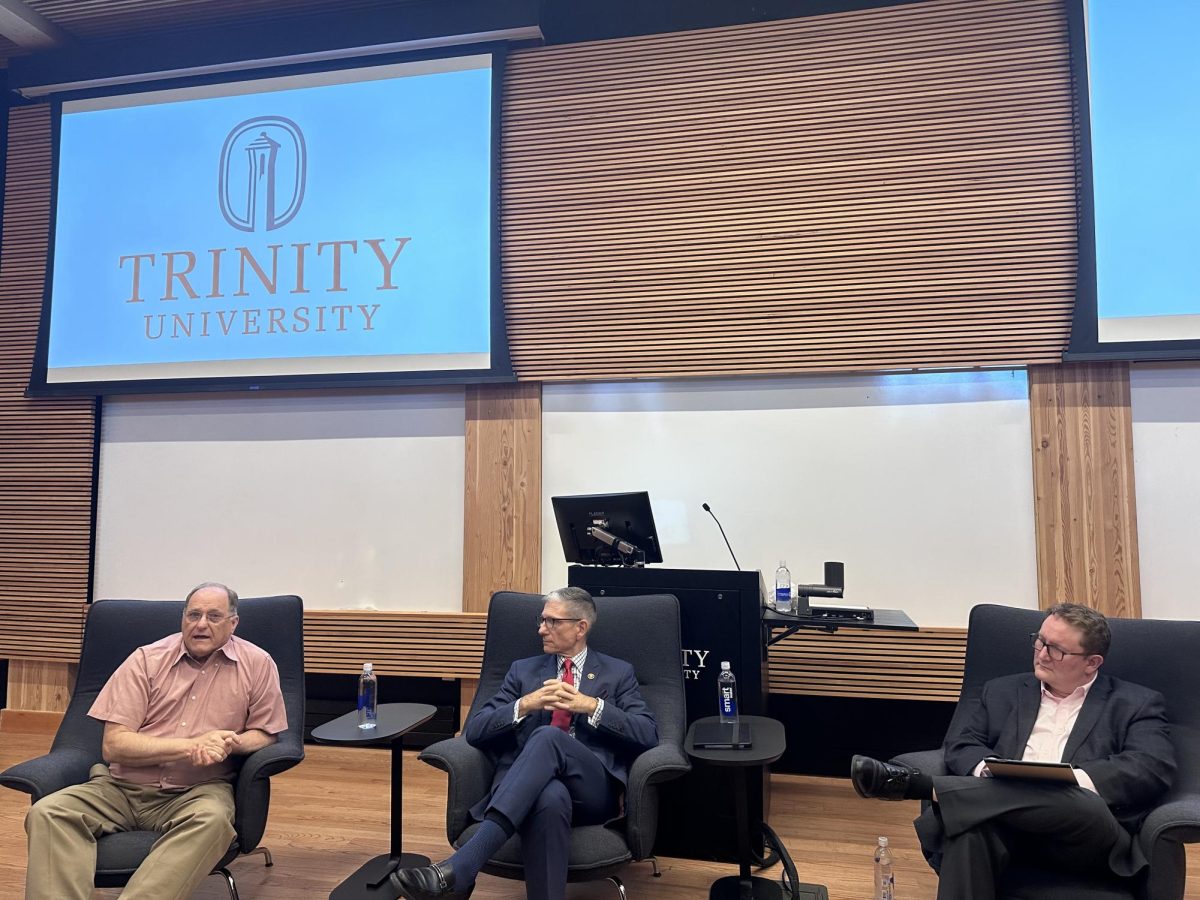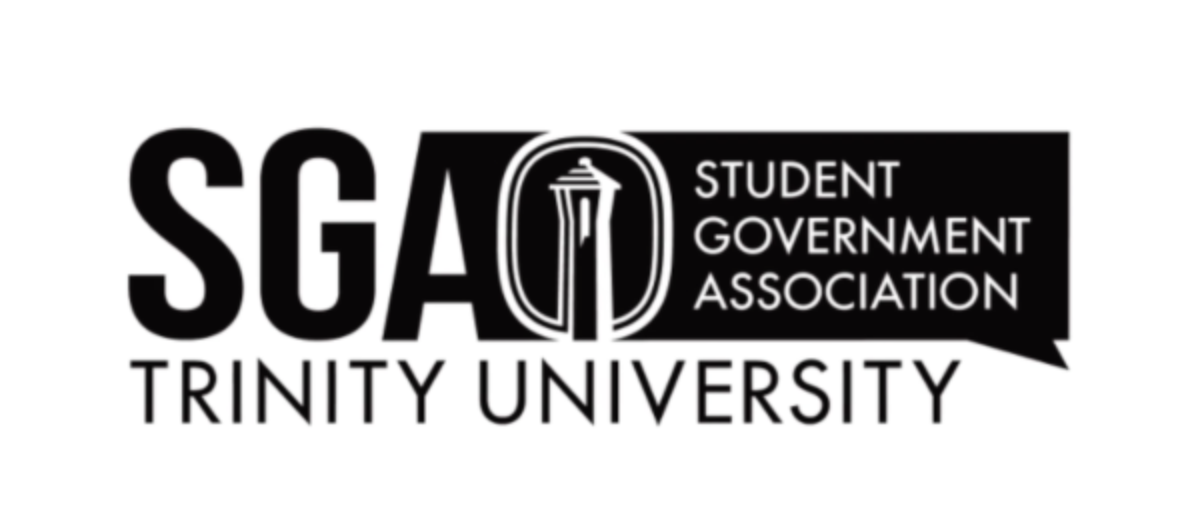The following covers the meeting on Feb. 5.
Adviser David Tuttle recognized president Claire Carlson, junior, as she was never officially honored as the new SGA president. He acknowledged her hard work and gave her a new gavel. All members of SGA received new plaques as well.
CLIMATE CHECK
First-year senator Jack Williams said a student complained to him about the expense of textbooks, and he wondered if Trinity could offer any relief or aid for the cost. President Carlson and vice president Georgia Roberts, sophomore, explained that there used to be an open educational resources (OER) committee and a textbook affordability committee within SGA. Carlson suggested Williams reach out to former SGA president, Ty Tinker, senior, who led the OER committee.
Senator Williams also mentioned that students seemed to be getting a lot of unnecessary parking violations. Adviser Tuttle suggested SGA reach out to Pete Perez, assistant chief of TUPD, to see if he could attend a future meeting and. explain the reasons behind parking violations.
Adviser Tuttle asked the students if they thought it would be helpful to split up reading days so that they alternated with exam days. Overall, senators and cabinet members voiced concerns about such a change.
Junior senator Leopoldo Perez questioned whether there had been any update to the construction that is complicating parking on lower campus. Adviser Tuttle suggested he reach out to Gary Logan, who is the vice president for Finance and Administration.
ACADEMIC CALENDAR
At the last SGA meeting, sophomore senator Oliver Chapin-Eiserloh expressed concern about the length of the add/drop period for classes that fall on a Monday and therefore do not meet until after add/drop ends because of school holidays.
Duane Coltharp, an associate vice president for Academic Affairs sits on a committee that will be discussing the academic calendar in February. SGA invited him to this meeting to go over any unclear aspects of the academic calendar.
Coltharp explained that there is already a policy that eases this complication for students: the add/drop period is extended for classes that meet just once a week.
First-year senator Emily Goll-Broyles asked why the next academic year starts a week later than this year. Coltharp explained that such a gap happens every six or seven years because of the way the calendar year lines up with the academic year. Since Trinity always starts on a Wednesday, the start date gets moved earlier every year until it is too early to start, then it moves up a week.
2019 FINANCIAL REPORT
Vice president Roberts briefly went over last year’s financial report. In the 2019 administration, SGA funded 45 different organizations, including university-sponsored organizations, Campus Publications and Recreational Sports.
NEW YORK TIMES
SGA revisited a conversation they had two meetings ago about whether to keep paying for paper copies of the New York Times. Vice president Roberts explained that roughly 50 copies are passed out every day, with an average of two or fewer copies left. Because of its usage, SGA decided to keep funding to have the publication on campus.
UNSUNG HEROES
President Carlson explained that Unsung Heroes reached out to her to see if SGA was interested in collaboration. The organization spotlights service workers. Adviser Tuttle suggest SGA think about nominating employees to receive the McKinley Award, which is awarded quarterly. Tuttle explained that he was unsure if Dining Services employees would be considered, as they are technically not Trinity employees, rather employees of Aramark, but suggested they confirm that with university president Danny Anderson.








